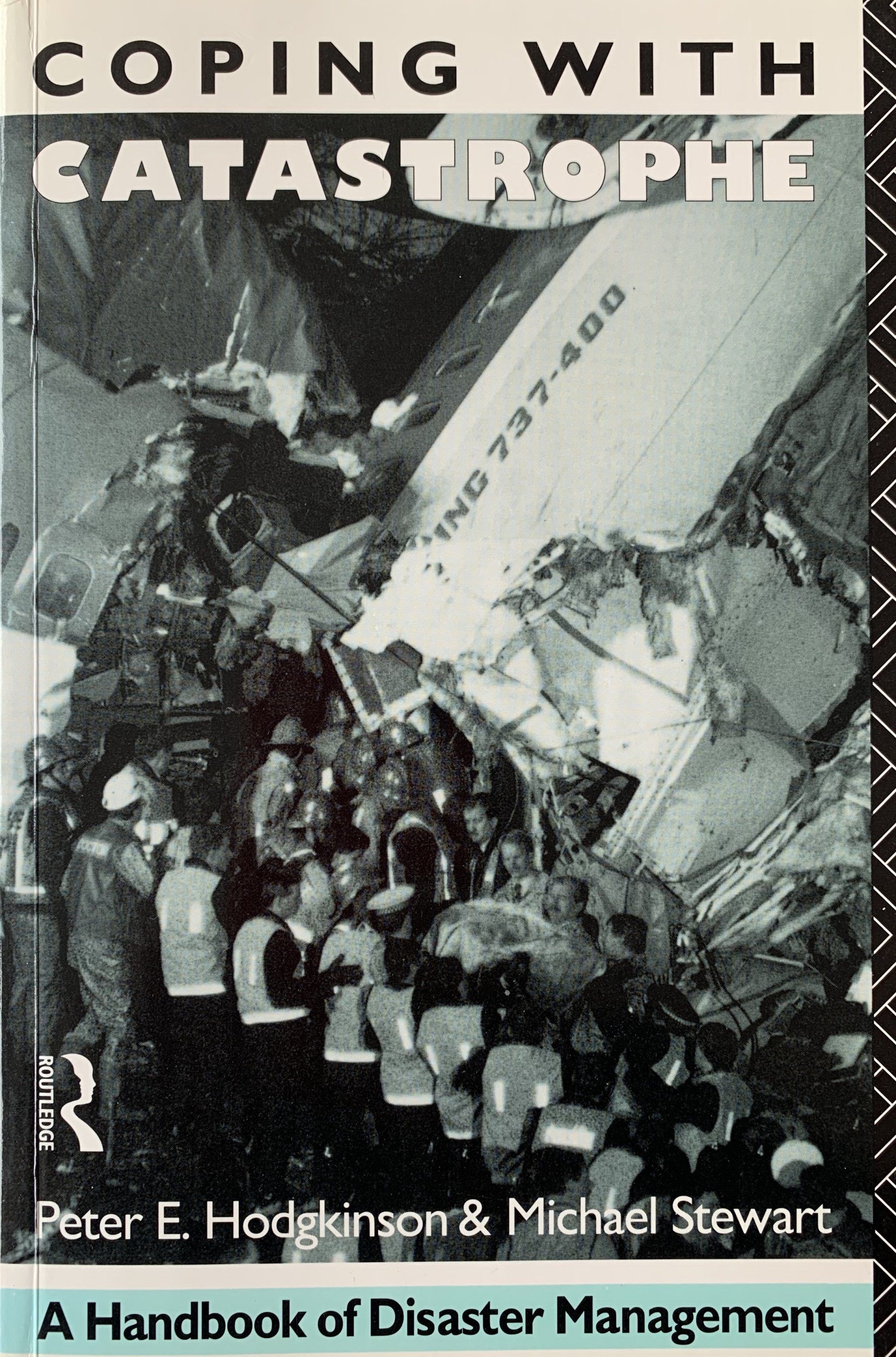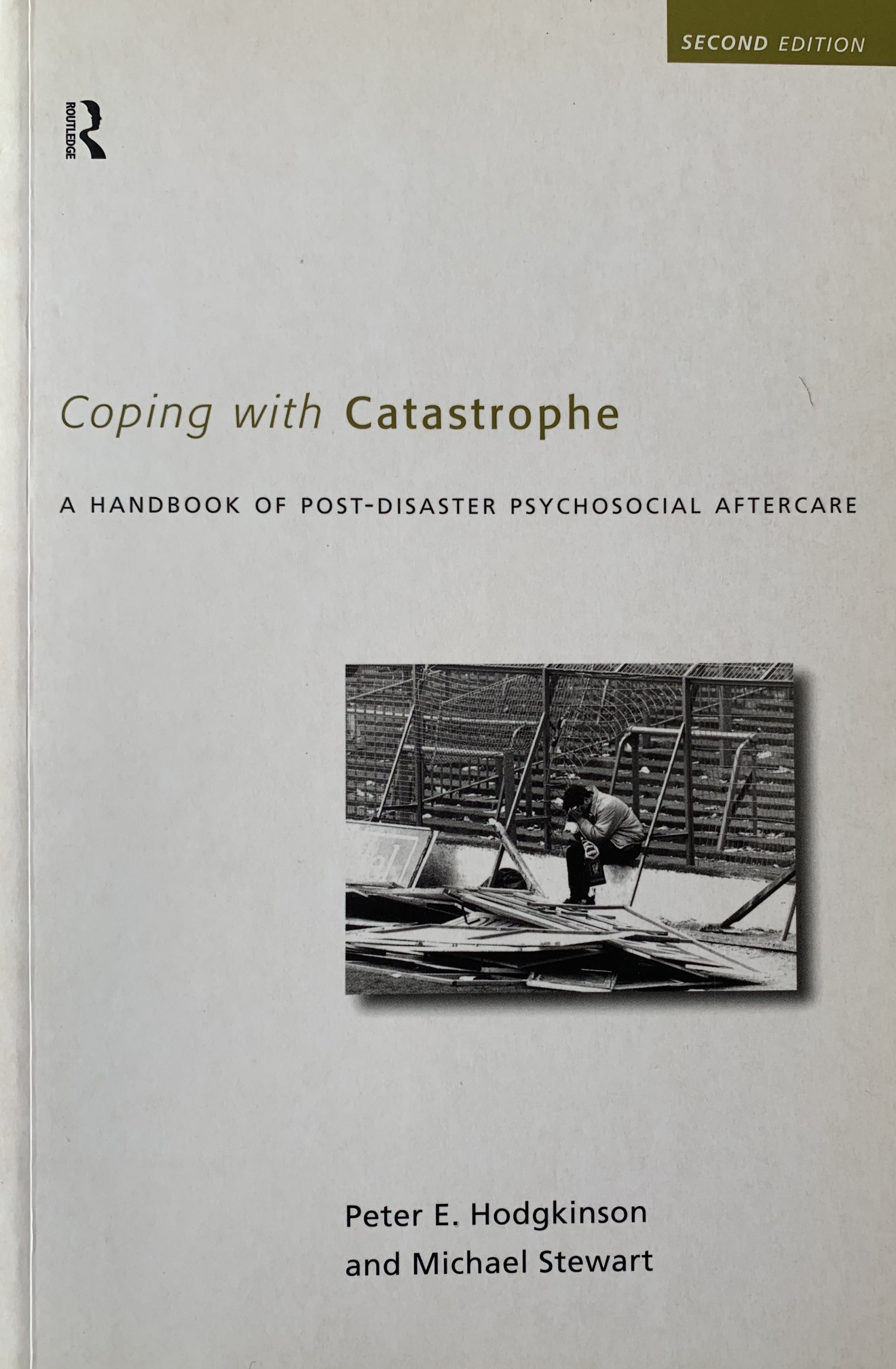Biography
Biography
Training
Peter Hodgkinson graduated from Durham University with a First Class Honours degree (BA) in Psychology in 1976; and from the Institute of Psychiatry, London University, with an MPhil in Clinical Psychology in 1978.
Forensic psychology
After working in general psychiatry, in 1980 he started at the St Charles Youth Treatment Centre, Brentwood, Essex, one of two national high-security units, working with adolescents who had committed grave offences. In 1983 he was appointed Principal Clinical Psychologist to the then South East Thames Regional Health Authority Forensic Psychiatry Service (SASS), helping establish the regional secure unit at Bexley Hospital, Kent - the Bracton Clinic. He conducted research on the use of seclusion, institutional patterns of assaults on staff and the development of the forensic psychiatry service.
Disaster, bereavement and trauma
In 1987 Peter, known locally as a specialist in bereavement, was asked to help Kent County Council plan their response to the Zeebrugge Disaster. He directed a team of 10 clinicians working with the passenger survivors and bereaved for a year. In conjunction with Dr Colin Murray Parkes, he constructed an interview format which formed the basis of a research study into psychological effects on survivors and the bereaved within the first year. With Professor William Yule and colleagues at the Institute of Psychiatry, he helped devise a three-year questionnaire follow-up. A variety of papers were published as a result of this joint endeavor.
The Centre for Crisis Psychology
From 1988, Peter and Michael Stewart, who had directed aftercare following the 1985 Bradford Fire were asked to work in a consultative and training capacity for social services departments and health authorities in the wake of the Piper Alpha Disaster, the Clapham Train Crash, the Lockerbie Disaster, the Kegworth Disaster and the Hillsborough Disaster.
In 1989 they established the Centre for Crisis Psychology, a consultancy specialising in post-trauma aftercare in a variety of commercial, industrial and public settings worldwide. Over the following 20 or so years, Peter's clinical practice included the following:
● Clinical work following a range of traumas including violent death; suicide; armed crime; hostage-taking; transport accidents; terrorist bombings, fires etc.
● Assessment of psychological trauma within a medico-legal context and stress-at-work issues within businesses
● Training public institutions and private companies to prepare an organisational response to trauma
A selected list of Peter's psychology publications can be found
here.
Training
Peter Hodgkinson graduated from Durham University with a First Class Honours degree (BA) in Psychology in 1976; and from the Institute of Psychiatry, London University, with an MPhil in Clinical Psychology in 1978.
Forensic psychology
After working in general psychiatry, in 1980 he started at the St Charles Youth Treatment Centre, Brentwood, Essex, one of two national high-security units, working with adolescents who had committed grave offences. In 1983 he was appointed Principal Clinical Psychologist to the then South East Thames Regional Health Authority Forensic Psychiatry Service (SASS), helping establish the regional secure unit at Bexley Hospital, Kent - the Bracton Clinic. He conducted research on the use of seclusion, institutional patterns of assaults on staff and the development of the forensic psychiatry service.
Disaster, bereavement and trauma
In 1987 Peter, known locally as a specialist in bereavement, was asked to help Kent County Council plan their response to the Zeebrugge Disaster. He directed a team of 10 clinicians working with the passenger survivors and bereaved for a year. In conjunction with Dr Colin Murray Parkes, he constructed an interview format which formed the basis of a research study into psychological effects on survivors and the bereaved within the first year. With Professor William Yule and colleagues at the Institute of Psychiatry, he helped devise a three-year questionnaire follow-up. A variety of papers were published as a result of this joint endeavor.
In 1987 Peter, known locally as a specialist in bereavement, was asked to help Kent County Council plan their response to the Zeebrugge Disaster. He directed a team of 10 clinicians working with the passenger survivors and bereaved for a year. In conjunction with Dr Colin Murray Parkes, he constructed an interview format which formed the basis of a research study into psychological effects on survivors and the bereaved within the first year. With Professor William Yule and colleagues at the Institute of Psychiatry, he helped devise a three-year questionnaire follow-up. A variety of papers were published as a result of this joint endeavor.
The Centre for Crisis Psychology
From 1988, Peter and Michael Stewart, who had directed aftercare following the 1985 Bradford Fire were asked to work in a consultative and training capacity for social services departments and health authorities in the wake of the Piper Alpha Disaster, the Clapham Train Crash, the Lockerbie Disaster, the Kegworth Disaster and the Hillsborough Disaster.
In 1989 they established the Centre for Crisis Psychology, a consultancy specialising in post-trauma aftercare in a variety of commercial, industrial and public settings worldwide. Over the following 20 or so years, Peter's clinical practice included the following:
● Clinical work following a range of traumas including violent death; suicide; armed crime; hostage-taking; transport accidents; terrorist bombings, fires etc.
● Assessment of psychological trauma within a medico-legal context and stress-at-work issues within businesses
● Training public institutions and private companies to prepare an organisational response to trauma
● Assessment of psychological trauma within a medico-legal context and stress-at-work issues within businesses
● Training public institutions and private companies to prepare an organisational response to trauma
A selected list of Peter's psychology publications can be found
here.
Coping with Catastrophe
His book Coping with Catastrophe
(1991 & 1998), published by Routledge, was the first book in the UK on post-disaster psychosocial aftercare.

